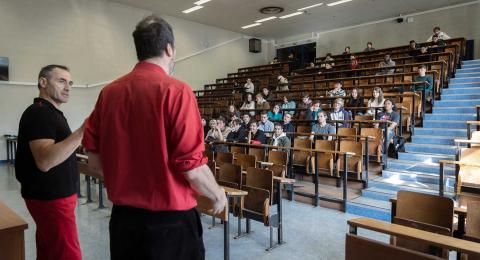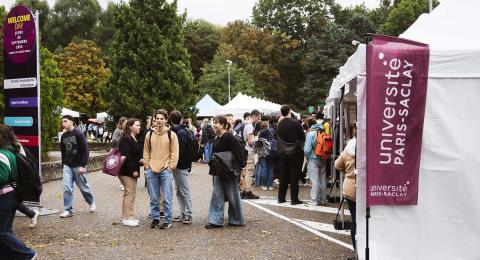M2 Advanced Manufacturing and Smart Systems



Information
Skills
Present and execute a scientific approach to solve a new problem.
Objectives
The Advanced Manufacturing and Smart Systems Master program is part of a training for researchers specialized in the field of complex systems engineering. It meets a real today industrial need in terms of engineering and research, combining major themes of the industry of the future, in particular the optimization of the manufacturing processes, and of the automatic control of critical systems.
The objectives of this Master program are twofold:
- To acquire the disciplinary theoretical and practical scientific knowledge necessary for the future researchers and research engineers in mechanical engineering and / or in automation.
- To acquire the transversal skills allowing to participate in a research and innovation project (analysis of articles and patents, development of IT prototypes, oral communication, report writing, etc.)
In order to personalize their training in line with their professional project, students can choose optional specialization courses focusing on two main topics: the optimization of manufacturing processes or the dependable control of intelligent systems.
Fees and scholarships
The amounts may vary depending on the programme and your personal circumstances.
Capacity
Available Places
Supporting documents
Compulsory supporting documents
Rank of previous year and size of the promotion.
Motivation letter.
Letter of recommendation or internship evaluation.
All transcripts of the years / semesters validated since the high school diploma at the date of application.
Curriculum Vitae.
Additional supporting documents
Certificate of English level.
Certificate of English level (compulsory for non-English speakers).
Certificate of French (compulsory for non-French speakers).
Every documents and achievements which could support the candidacy (report, case study, partnership prospectus, event creation, etc.).
VAP file (obligatory for all persons requesting a valuation of the assets to enter the diploma).
Supporting documents :
- Residence permit stating the country of residence of the first country
- Or receipt of request stating the country of first asylum
- Or document from the UNHCR granting refugee status
- Or receipt of refugee status request delivered in France
- Or residence permit stating the refugee status delivered in France
- Or document stating subsidiary protection in France or abroad
- Or document stating temporary protection in France or abroad.





